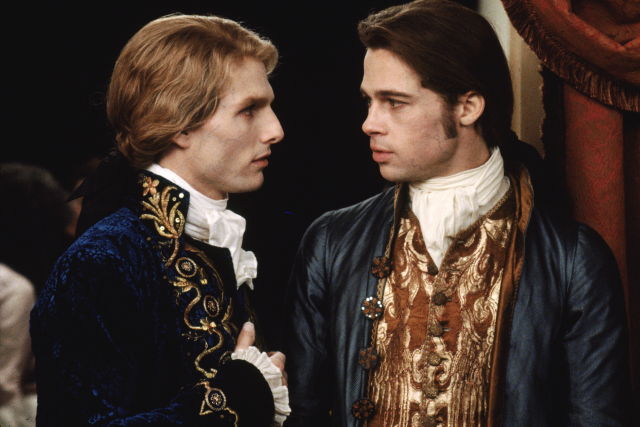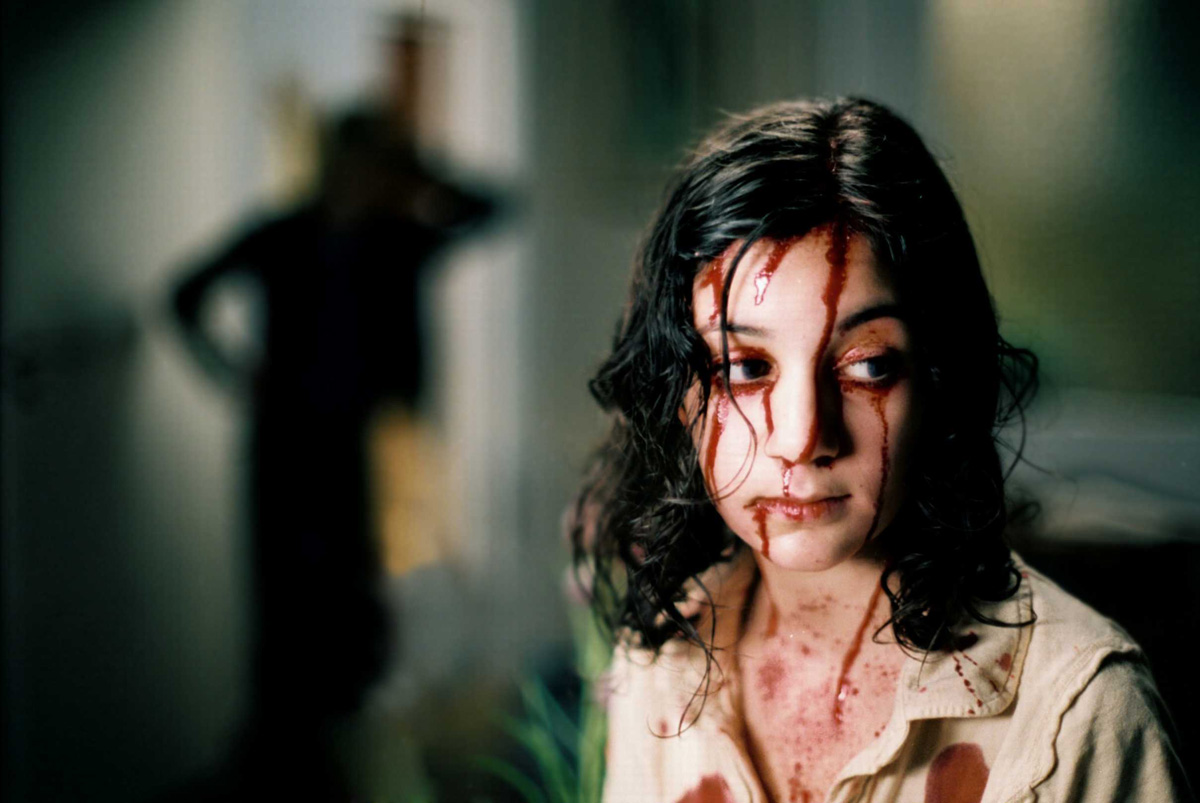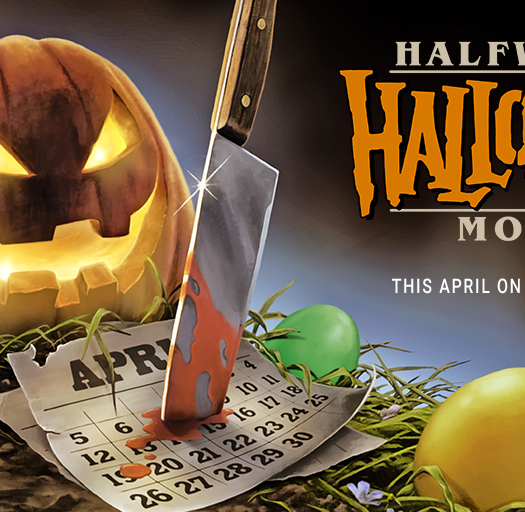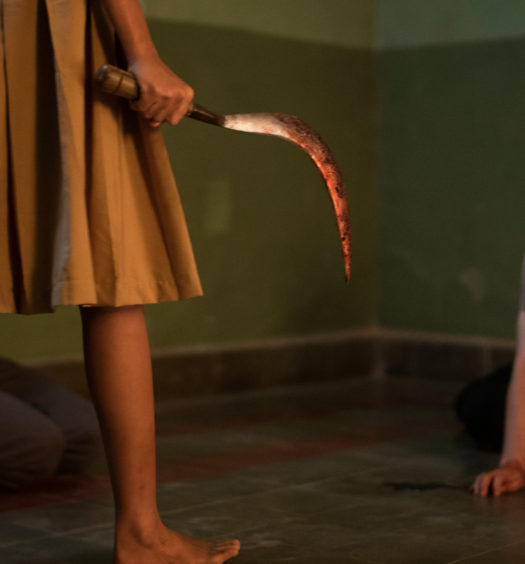The Ethical Allegory
Last, but certainly not least on our list, we come to what I call the exploration of vampire ethics. Largely, films depict vampires as remorseless, soulless killing machines. Perhaps, this is what made Boreanaz’s Angel character so intriguing, and his turn to Angelus so heartbreaking. But long before Angel made us swoon, the original tortured, brooding vampire to capture our hearts was Brad Pitt’s Louis in 1994’s Interview With The Vampire. Meanwhile, Tom Cruise’s positively evil Lestat gives us the pure vampire id that we love to hate. The juxtaposition of Louis and Lestat undoubtedly influenced countless future writers. Whedon, just one such writer, chose to explore this dual nature through a single character like Angel and Angelus.

The juxtaposition of Louis and Lestat undoubtedly influenced countless future writers.
Like Coppola’s film, Interview With The Vampire is dated, over acted, and highly stylized compared to the more subtle and understated films of today. Sorry–so very sorry–but it’s true. However, Pitt and Cruise’s portrayals laid the groundwork for so many modern vampire tales. When Eli struggles with the loss of her humanity and her love for Oskar in Let the Right One In, the influence of Louis cannot be denied.
Conclusion And Honorable Mentions
It’s no coincidence that the list stops in the 1990’s. While the past 18 years have delivered some great vampire movies, it’s still a tad early to see how influential they’ll become. That said, honorable mentions for likely candidates in the 2000’s should obviously include Let The Right One In, What We Do In The Shadows, and A Girl Walks Home Alone At Night. Even The Transfiguration deserves a mention for how it deals with vampire culture.
Overall no one can definitively tell you what the best vampire movies are for you, and some of my favorite films are nowhere to be seen. But there’s no denying the massive impact and influence each of these films had on the genre, as it truly wouldn’t be the same today with any of them.































